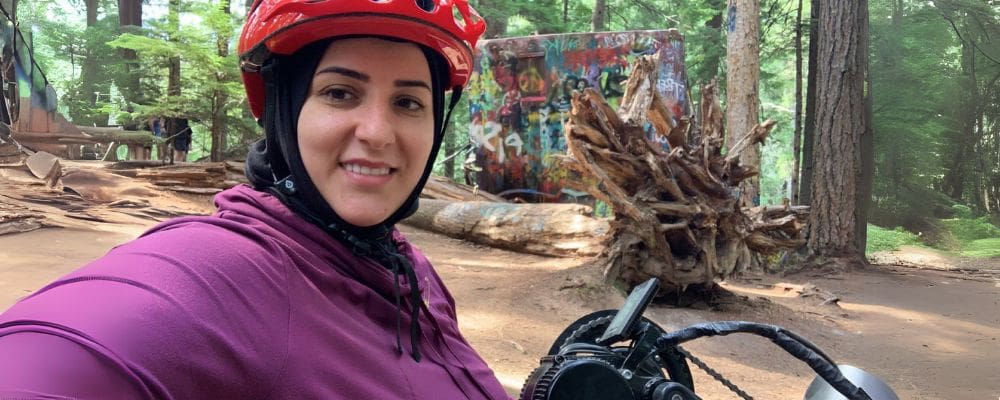by Valeria Alcaraz and Sara Qureshi, Centre for Diversity Anti-Racism Awareness Week
The province of British Columbia declared a week in May as the Anti-Racism Awareness Week. The intention was to provide residents with a chance to further educate themselves; to actively challenges biases and reflect on their contributions to creating a welcoming environment. Working collaboratively with other organizations, this was seen as an opportunity to build a strong province based on mutual respect and appreciation of diversity, so BC is populated by a just and equitable society.
This year, the Anti-Racism Week will be commemorated from May 26 to June 1.
The government of BC acknowledges that the history of the province is rooted in events of exclusion and discrimination of Indigenous and racialized communities. From residential schools to discriminatory policies of migration, to increased hate crimes against diverse communities to the continuous lack of access to services. It is within this frame that Anti-Racist education becomes fundamental to dismantling the effects -notions and practices- of colonialism and enhances the understanding of culture, race and ancestry to create safe and inclusive environments.
The month of May was chosen because of three major events that re-oriented the path towards justice in our province and the world. The Komagata Maru incident, the killing of George Floyd, and the COVID-19 Pandemic. The last one in reference to the unfortune increased harassment of the East-Asian community and May also being the Asian Heritage Month.
These are all instance of racism that serve as examples for us to think critically and actively about how society should redress harms and move forward.
The Komagata Maru
In 1914, the Komagata Maru, carrying 376 Indian passengers seeking refuge from potential persecution in British India, was denied entry to Canada. Despite attempts to appeal in court and a dire humanitarian situation onboard, the Canadian government refused entry, leading to the ship’s expulsion with naval escort. This event highlighted Canada’s discriminatory immigration laws, rooted in racial prejudice and fear of displacement. It led to policy changes enabling deliberate exclusion, particularly targeting Asian immigrants like those aboard the Komagata Maru.
Killing of George Floyd
In May 2020, George Floyd was violently arrested by four police officers. Derek Chauvin knelt on Floyd’s neck leading to his death, sparking global protests against police brutality, particularly towards Black people. Chauvin was sentenced to 22 years in prison. The incident reignited the Black Lives Matter (BLM) movement, originally founded in 2014 after the deaths of Trayvon Martin, Michael Brown, and Eric Garner. BLM advocates for racial equity, condemns racially motivated violence, and calls for police reform, including defunding and abolition. The movement promotes anti-racism education and peaceful protests, garnering strong support from marginalized communities worldwide.
COVID-19 Pandemic and Asian Harassment
The COVID-19 pandemic’s origin in Wuhan, China, led to the association of the virus with Asia, fueling discrimination against Chinese and East-Asian people globally. Stress, misinformation, and mourning exacerbated existing prejudice, resulting in increased violent incidents against the Asian community. Similar to the Black Lives Matter movement, the Asian community launched the Stop Anti-Asian Hate movement to encourage reporting, raise awareness for government protection, develop educational programs, and promote community support and solidarity.
Acknowledging and addressing uncomfortable incidents of discrimination is essential to prevent further harm. Community activism and education have been crucial in advocating for justice, as seen in the official apology for the Komagata Maru incident. The City Council’s recognition of the discrimination against South Asians on May 18, 2021, marked a step toward redress, but there is still much work to be done. While apologies to racialized communities are significant, real transformative change is what is ultimately desired.
To be Anti-Racist, we must actively challenge and prevent values, structures and behaviour that perpetuate hate, intolerance, and isolation. Anti-Racism education allows us to identify past and present struggles to interrogate what we know and the way we act, to listen and enhance the voices of the most affected, and to strive for the reduction and elimination of prejudice and even some of the disparities. MOSAIC Centre for Diversity offers Anti-Racism education to newcomers and residents alike, working in collaboration with the BC government through the Resilience BC program, to host a series of events for impactful policy and population transformation.
We invite everyone to join the action to tackle racism within the city and province, as this is a priority for us to live in a peaceful and rightful way. If you wish to know more about Anti-Racism, governmental efforts, and other educational resources, here is a list for you:
Vancouver’s Anti-Racism Updates
Resilience BC Anti-Racism Network
Erase Racism/Embrace Diversity




